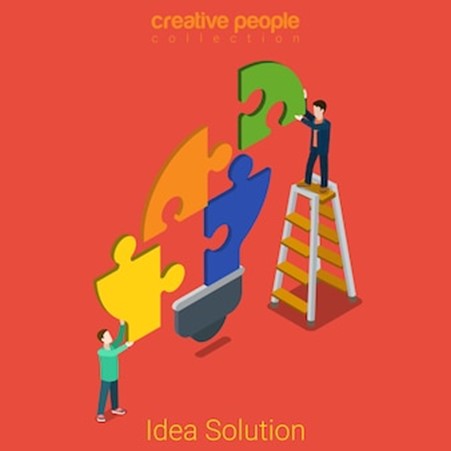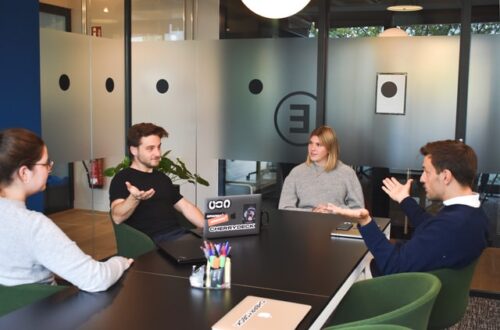Creative problem solving skills are essential in every aspect of life, and especially in the workplace. As businesses and organizations continue to evolve, the need for individuals who possess excellent problem-solving abilities becomes even more critical. Being able to identify, analyze, and solve problems efficiently is a valuable asset to have, and it is a skill that can be developed and improved upon.
The Importance of Problem Solving Skills in the Workplace
Problem-solving skills are essential in the workplace for several reasons. It allows individuals to identify and assess problems, find solutions and implement them effectively. Companies that encourage their employees to develop their problem-solving skills have a competitive edge in the market because they are better equipped to address challenges that arise.
Organizations that emphasize problem-solving skills have a more efficient workforce. Employees who possess these skills can work independently or in teams to identify problems and come up with creative solutions. They can also think on their feet and adapt to changing circumstances, which is vital in today’s fast-paced business world.
Understanding the Different Approaches to Problem Solving
There are several approaches to problem-solving, and understanding them is crucial in developing effective problem-solving skills. Some of the common approaches include the analytical, creative, and critical thinking approaches.
The analytical approach involves breaking down a problem into smaller parts and analyzing each part to find a solution. The creative approach, on the other hand, is more open-minded and involves thinking outside the box to find a unique solution. Finally, the critical thinking approach involves evaluating information and using logic to come up with a solution.
Introducing the HBDI Framework for Problem Solving
The Herrmann Brain Dominance Instrument (HBDI) is a framework that can help individuals understand their thinking preferences and how to use them effectively to solve problems. The HBDI framework categorizes thinking into four quadrants – analytical, practical, relational, and experimental. Each quadrant represents a different thinking style, and identifying your thinking preferences can help you develop your problem-solving skills.
The HBDI framework can help individuals and teams work together more effectively by identifying each member’s thinking preferences. Understanding these preferences can help team members appreciate and value the different perspectives and contributions each member brings to the table.
How HBDI Can Enhance Creative Problem Solving
The HBDI framework can enhance creative problem-solving by helping individuals and teams identify their thinking preferences and leverage them to find innovative solutions. For example, individuals who have a preference for the experimental quadrant may be more likely to come up with unconventional solutions to problems. Conversely, individuals who have a preference for the analytical quadrant may be more likely to identify the root cause of a problem and develop a logical solution.
By understanding their thinking preferences, individuals can also develop a more holistic approach to problem-solving. They can consider different perspectives and approaches to a problem and develop a solution that addresses all aspects of the problem.
Developing Critical Thinking and Problem Solving Skills
Developing critical thinking and problem-solving skills requires practice and effort. One way to start developing these skills is by challenging yourself to think critically and creatively. You can do this by asking yourself questions, analyzing information, and considering different perspectives.
Another way to develop critical thinking and problem-solving skills is by seeking out opportunities to solve problems. This could involve taking on new challenges at work or in your personal life. By actively seeking out opportunities to practice problem-solving, you can develop your skills and become more confident in your ability to solve problems.
Strategies to Improve Problem Solving Skills
There are several strategies that individuals can use to improve their problem-solving skills. One effective strategy is to break down complex problems into smaller, more manageable parts. By doing this, you can focus on each part of the problem and develop a solution for each part before putting everything together.
Another strategy is to consider different perspectives. When faced with a problem, take the time to consider how different people might approach the problem. By considering different perspectives, you can develop a more comprehensive understanding of the problem and develop a solution that addresses all aspects of the problem.
The Art of Problem Solving
The art of problem-solving involves a combination of analytical, creative, and critical thinking skills. It requires individuals to be open-minded, curious, and willing to take risks. The art of problem-solving also involves being able to communicate effectively and work collaboratively with others.
Individuals who have mastered the art of problem-solving are highly valued in the workplace. They are able to work effectively in teams, adapt to changing circumstances, and find innovative solutions to complex problems.
Real-Life Examples of Creative Problem Solving
Creative problem-solving has been used in various industries to find innovative solutions to complex problems. For example, the healthcare industry has used creative problem-solving to develop new treatments and therapies for diseases. The technology industry has used creative problem-solving to develop new products and services that meet the changing needs of consumers.
One real-life example of creative problem-solving is the development of the electric car. As concerns about climate change and greenhouse gas emissions grew, the automotive industry began exploring alternative fuel sources. Through creative problem-solving, engineers were able to develop an electric car that was efficient, environmentally friendly, and affordable.
Incorporating Creative Problem Solving into Your Daily Life
Incorporating creative problem-solving into your daily life can help you develop your problem-solving skills and become more effective at solving problems. One way to do this is by challenging yourself to think creatively. This could involve trying new things, exploring new ideas, and taking risks.
Another way to incorporate creative problem-solving into your daily life is by seeking out opportunities to solve problems. This could involve volunteering for projects at work or in your community that require creative problem-solving skills.
The Benefits of Creative Problem Solving in Business
Creative problem-solving can provide several benefits for businesses. It can help businesses find innovative solutions to complex problems, improve efficiency, and increase productivity. Creative problem-solving can also help businesses adapt to changing circumstances and stay ahead of the competition.
Businesses that encourage their employees to develop their creative problem-solving skills have a competitive edge in the market. They are better equipped to address challenges that arise and are more likely to develop innovative solutions that meet the changing needs of consumers.
Conclusion: Unlocking Innovation and Success with Creative Problem Solving
Developing problem-solving skills is essential in today’s fast-paced business world. By understanding the different approaches to problem-solving and developing critical thinking skills, individuals can become more effective problem solvers. The HBDI framework can help individuals and teams identify their thinking preferences and leverage them to find innovative solutions to complex problems.
Incorporating creative problem-solving into your daily life can help you develop your problem-solving skills and become more effective at solving problems. The benefits of creative problem-solving in business are numerous, and businesses that encourage their employees to develop their creative problem-solving skills have a competitive edge in the market. By unlocking innovation and success with creative problem-solving, individuals and businesses can thrive in today’s dynamic business environment.
Start developing your strategic problem-solving skills today. Challenge yourself to think critically and creatively, seek out opportunities to solve problems, and explore different approaches to problem-solving. By developing your problem-solving skills, you can become a more effective problem solver and unlock innovation and success in your personal and professional life. Contact us for more information












